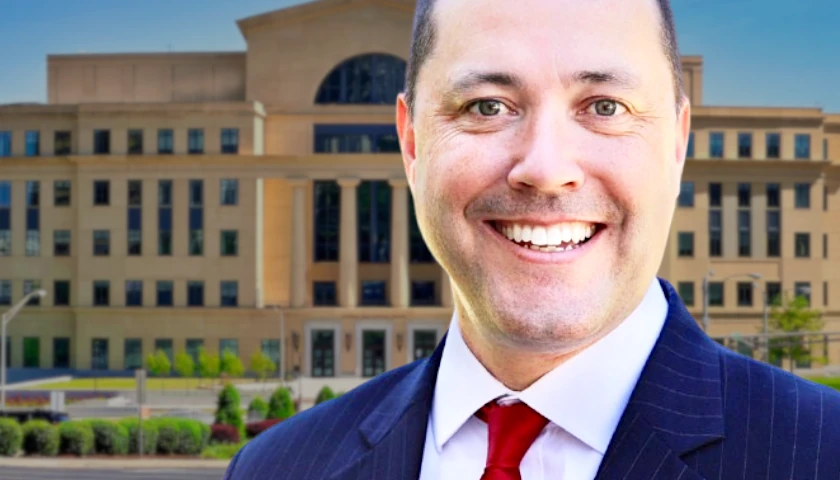by Ford Stokes
Leaving a smart legacy for the future is crucial to ensure that your assets are passed tax-efficiently to your loved ones and that your wishes are carried out. By taking the time to plan, you can provide for your family even after you are gone.
There are many facets to leaving a smart legacy. Still, one of the most important is to ensure you have a will — a crucial document for estate planning that ensures your wishes are known and followed, reducing the burden on your family. Without a will, your assets may be distributed according to state laws, which may not align with your intentions.
Retirement accounts also play a significant role in estate planning. For example, consider converting your traditional IRA to a Roth IRA. Funds within a Roth IRA can pass to your beneficiaries tax-free, and any growth within the Roth is also tax-free. Always consider what you can do to minimize the tax burden on your loved ones and ensure that they inherit assets without a tax bomb.
Wills vs. trusts
When it comes to estate planning, two standard legal documents are wills and trusts — and there can be some confusion between the two. While both serve the purpose of managing a person’s assets after their death, they have some key differences:
- Wills: A will is a legal document outlining how a person’s assets should be divided upon death. It also designates an executor to handle the estate and ensures that your assets are distributed according to your wishes. A will is typically less expensive to set up than a trust and suitable for individuals with simpler estates.
- Trusts: A trust is an arrangement that allows a person to transfer their assets to a trustee during their lifetime. The trustee is responsible for managing the assets and distributing them to the beneficiaries named in the trust. Trusts can provide more control and flexibility in asset distribution and help minimize estate taxes. They are often recommended for individuals with larger estates or specific wishes for asset distribution.
The benefits of estate and legacy planning
Why take the time to plan your legacy? Here are three reasons why it’s worth your time:
- Tax efficiency: One of the primary benefits of estate planning is the ability to pass on your assets tax-efficiently. Retirees can avoid hefty taxes associated with distributing assets after death by setting up trusts and wills. This ensures that more of your assets are passed on to your loved ones, allowing them to benefit from your hard-earned wealth.
- Asset distribution: Estate planning also eliminates the possibility of family disputes over who should receive what asset. By clearly outlining your wishes in a will or trust, you can ensure that your assets are distributed according to your intentions. This can help prevent conflicts among family members and provide clarity and peace of mind for everyone involved.
- Providing for loved ones: Planning your legacy allows you to provide for your loved ones even after you are gone. This can include financial support for your spouse, children, or other dependents. By setting up trusts or designating beneficiaries for your retirement accounts and life insurance policies, you can ensure that your loved ones are taken care of financially. This can provide peace of mind, knowing that your family will be provided for in the event of your death.
10 savvy estate planning strategies for a bright future
- Reimagine your IRA investments: The new IRA distribution rules require beneficiaries to distribute assets within a 10-year window. Consider leaving traditional IRAs to beneficiaries who aren’t subject to these rules, such as siblings or individuals with disabilities.
- A Roth conversion could be worth it: Take advantage of the raised age for required minimum distributions by converting voluntary distributions into tax-free Roth IRAs benefiting non-spouse beneficiaries.
- Maximize the annual gift tax exclusion: You can gift up to $15,000 per person per year or up to $30,000 for couples. Consider using the 529 college savings plan to contribute up to $75,000 at once.
- Use the lifetime gift exemption now: If you anticipate a decrease in the lifetime gift exemption, consider using it early to reduce your taxable estate. Be mindful of the cost-basis implications for gifted assets.
- Pay for education/medical directly: Reduce future estate taxes by directly paying for someone else’s medical expenses or education. These payments don’t count toward the annual exclusion or estate tax exemption.
- Build an irrevocable trust: Create a spousal lifetime access trust (SLAT) to benefit from the current high exemption while maintaining access to funds. Consult an attorney to ensure compliance and protect your assets.
- Use a bypass trust: Consider a bypass trust to preserve assets for heirs, especially if you have appreciated assets. This strategy can provide tax savings and ensure a smooth transfer of assets.
- Protect your assets from creditors: Safeguard your assets from lawsuits and estate taxes using domestic asset protection trusts. These trusts allow you to move money out of your estate while maintaining access.
- Use revocable trusts for asset management: Use revocable trusts to manage your assets as you age efficiently or face health issues. These trusts can help avoid scams and preserve more money for your heirs.
- Plan for future medical issues: Develop a long-term care cost plan to protect your assets while guaranteeing care for yourself or your spouse. Special-needs trusts can also safeguard funds for loved ones with disabilities.
When planning your legacy, remember to be smart with your risks, taxes, and income. Consulting with a financial professional and an experienced estate planning attorney can help you navigate the complexities of estate and legacy planning and ensure that your wishes are carried out effectively.
Our firm offers cost-effective wills and trust creation through an estate planning service with licensed attorneys in each US State who specialize in Estate Planning, to book a free consultation directly into my calendar, visit https://calendly.com/fordstokes or visit our radio show website https://retirementresults.com/.
– – –
Ford Stokes is a licensed financial advisor who hosts Retirement Results, a financial radio show, on the John Frederick’s Radio Network on 18 stations in 9 states on Saturdays and Sundays. Ford is an author of three financial education books including, Annuity 360, Taxes Are on Sale and The Smart Retirement Plan Book. He educates prospects and clients to help them invest and retire successfully. Retirement Results is an advertiser on the John Fredericks Media Network.





